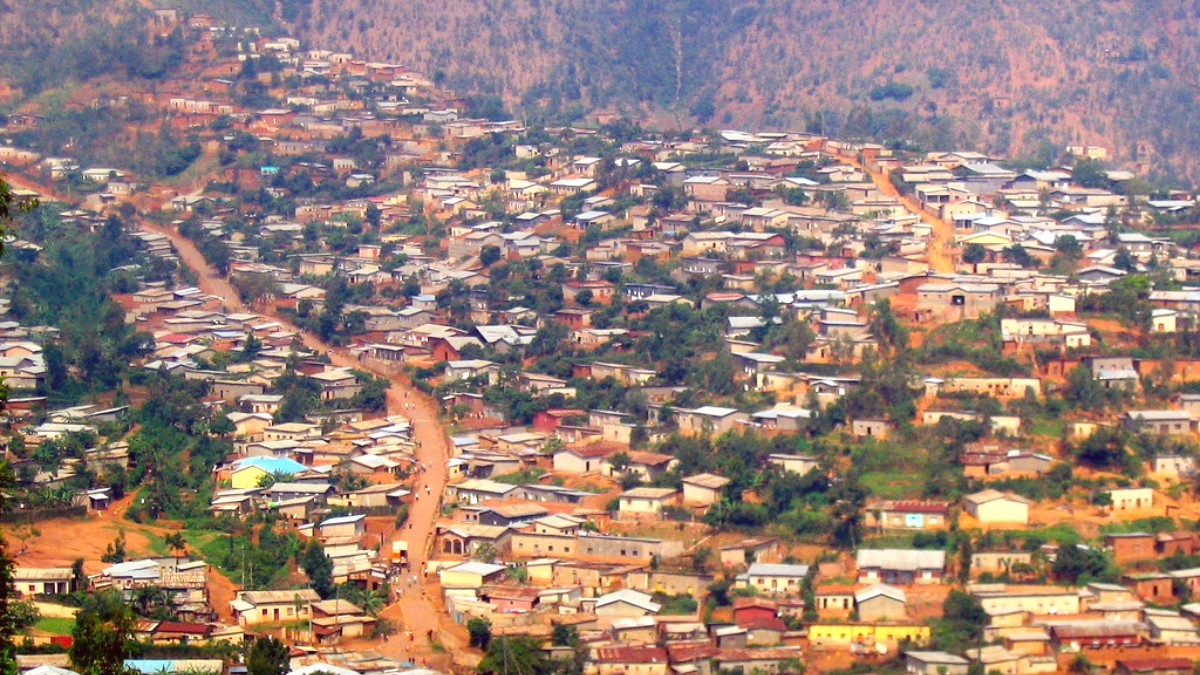
Rwanda
Rwandan cuisine focuses on staple foods: plantains, sweet potatoes, beans, cassava, and sorghum.
Cooking methods reflect traditional agricultural practices, with emphasis on fresh, locally sourced ingredients.
Common staples are Isombe (cassava leaves), Ibishyimbo (beans), and Ubugali (stiff porridge).
Goat, beef, chicken, and tilapia fish from Lake Kivu are common protein sources.
Rwandan cuisine uses mild spices, allowing natural flavors of fresh ingredients to shine.
A stiff porridge from cassava, maize, or sorghum flour, served alongside stews. Eaten by scooping food.
Find it in any local eatery ("Imana").
Finely pounded cassava leaves, cooked to a soft, rich consistency, often with eggplant. A hearty national favorite.
Look for it in local Rwandan restaurants.
Grilled meat skewers (goat, beef, or chicken), often with roasted plantains or fried potatoes.
Available at most local restaurants and bars, especially in the evenings.
Urwagwa (Banana Beer) and Ikigage (Sorghum Beer) are traditional alcoholic drinks.
Roasted/fried sweet potatoes/cassava and abundant fresh tropical fruits are popular snacks.
Sophisticated culinary experiences, often found within luxury hotels.
Growing selection of mid-range restaurants offering diverse cuisines in comfortable settings.
Authentic and affordable meals through Kigali's local food scene.
Kigali's culinary landscape includes Italian pizzerias, Indian curries, Chinese stir-fries, and Ethiopian stews.
These options concentrate in areas like Kimihurura and Kiyovu.
Caters to the diverse expatriate and tourist population.
Many traditional Rwandan dishes are vegetarian and can be vegan-adapted.
Halal food in Nyamirambo. Kosher is generally not readily available.
Many Rwandan staples like ugali (from cassava) are naturally gluten-free.
Communicate specific allergies clearly to staff.
Nyamirambo Women's Center offers traditional Rwandan cooking classes as part of their cultural tours.
You learn to prepare dishes like Isombe, from market shopping to cooking and eating.
Coffee Farm Tours: Learn about Rwanda's coffee industry from bean to cup. Taste freshly brewed coffee.
Tea Plantations: Insights into tea production, usually a bit further afield from the city.
It is an affordable and authentic way to eat.
Kigali hosts fewer large-scale food festivals compared to major Western cities.
Communicating specific allergies clearly is important.
Research specific restaurants beforehand.
Write down your allergies in Kinyarwanda and French to show to restaurant staff.
This communication is .
While Kigali offers options, maintaining some flexibility in your dining helps.
Adapt to available choices.
Rwandan cuisine emphasizes fresh, local ingredients and mild, natural flavors.
Venture beyond hotels to local eateries and markets for genuine experiences.
Participate in cooking classes or food tours to deepen your cultural connection.
Kigali's culinary scene grows, offering everything from traditional Rwandan dishes to international flavors. Food here celebrates fresh, locally sourced ingredients.